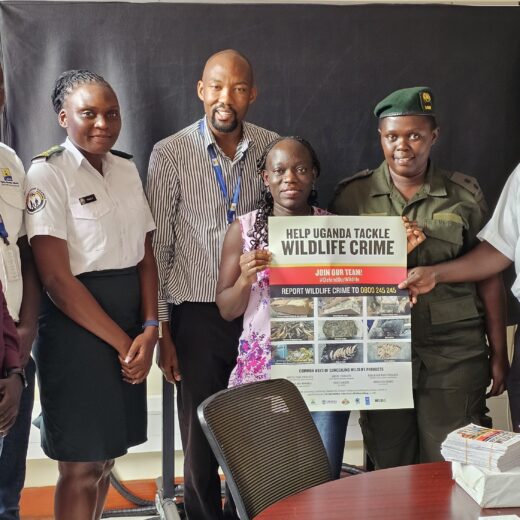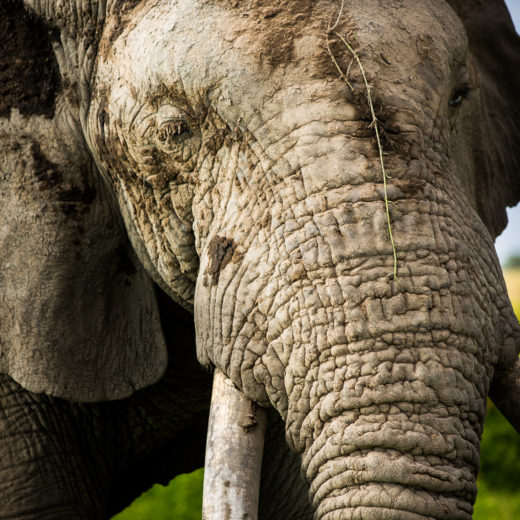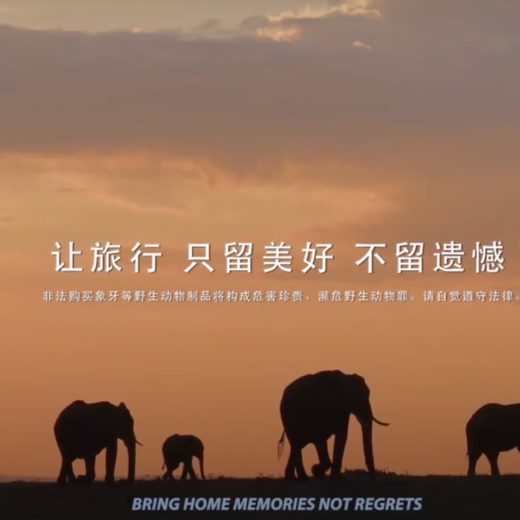
BEIJING – Former NBA star Yao Ming delivered a petition (full version below) earlier today during the opening session of the Chinese People’s Political Consultative Conference (CPPCC) asking China’s government to ban sales of ivory.
Signatories and fellow CPPCC members include Wang Wenjing (Chairman and CEO of Yonyou Software), Liu Jun (Chairman of Eagle International Holdings), Xu Shaochun (Founder of Kingdee Software), Zhu Xinli (Chairman of China Huiyuan Juice Co.), and Yu Minhong (Founder of New Oriental Education).
Yao has visited Kenya and South Africa, learning about the poaching crises firsthand and filming a documentary for state broadcaster CCTV. He previously helped to reduce China’s demand for shark fin by a reported 50% through his campaign with WildAid. After a previous CPPCC resolution President Xi’s administration banned shark fin from state banquets.
In April 2013, Yao launched a campaign with WildAid, the African Wildlife Foundation, and Save the Elephants to reduce demand for ivory and rhino horn. In January, officials crushed more than six tonnes of seized ivory and in 2013, China’s State and National Forestry Departments appealed to travelers through SMS alerts not to purchase ivory or rhino horn. On February 27, China’s top business leaders released a pledge to never purchase, possess, or give ivory as a gift. WildAid China Board Chairman, Mr. Huang Nubo spearheaded pledge recruitment which includes Cao Guowei, CEO of Sina Corp., China’s largest internet portal, as well as 10 individuals from the Forbes 2013 China Rich List including Jack Ma, founder of the Alibaba Group.
“As China grows up, Chinese companies should do the same and take on more social responsibility,” said Nubo. “This is why we are joining efforts to protect our planet’s wildlife. We hope this ethic becomes engrained in us and is passed down to future generations.”
Recent surveys indicate a large portion of China’s population is unaware of the death toll to create ivory and rhino horn products, yet a greater number of residents support government enforced bans.
“China can truly be a global leader in conservation and stopping the legal sales of ivory, which enable laundering and confuse consumers, would be a great step towards that,” said WildAid Executive Director Peter Knights.
In the United States, Hawaii and New York legislatures are considering banning sales of ivory.
Proposal to issue a ban on ivory sales
Overview
In recent years, the revival of trade in ivory has resulted in rampant poaching and smuggling of ivory, leading to significant reductions in elephant populations. In order to combat ivory smuggling and illegal sales of ivory, China has issued a series of laws and regulations. But because of the immense size of China’s ivory market, complex management systems, and consumers often unable to determine the legal status of ivory products, smuggling and illegal ivory continue to enter China, adding pressure and complexities to the work of customs officials, and damaging our economy and safety.
Background
Estimates show that at least 20,000 elephants are being killed each year for their ivory. Elephant populations have been reduced 62% in the last 10 years. Rampant poaching is damaging the economies, tourism industries, and stability of many African nations, while some terrorist organizations are receiving funding from the trade in illegal ivory.
A recent survey carried out by WildAid and partners of 961 residents in Beijing, Shanghai and Guangzhou indicates that 94% of those surveyed support a government ban on ivory. China has recently begun strengthening enforcement on illegal ivory smuggling, and earlier this year destroyed over 6 tonnes of confiscated ivory, showing the resolve of the Chinese government to stifle the trade in illegal wildlife products.
Issues
1. After the ban on international ivory sales in 1989, the market for ivory was significantly reduced, leading to corresponding reductions in poaching of elephants and an increase in elephant populations. After the purchase of an ivory stockpile in 2008 which has helped revitalize Asian markets for ivory, poaching of elephants across Africa has increased rapidly. This shows that the trade in ivory is the main driver of elephant poaching.
2. Criminal gangs are increasingly smuggling ivory into China, causing China to spend a great amount of manpower, funding, and other resources to combat this smuggling and storing of confiscated ivory. This is to the detriment of China’s economy and safety.
3. Because of ivory’s high market value, it is often purchased to be given as gifts, very often leading excess and corruption in the government.
4. China has made great achievements in recent years on the protection of wildlife, but China’s ivory market and ivory smuggling have damaged China’s international reputation.
Recommendations
Because the ivory trade is leading to the poaching of elephants, I recommend that China ban all sales of ivory, prohibit imports of ivory, prohibit the sale, purchase, transport, carrying, and shipping of all ivory products. I believe that this ban on ivory will lead to the protection of elephants, ease the burden on customs officials, maintain safety, and help make China a leader in wildlife conservation.
Stay in touch and get the latest WildAid updates.
SIGN UP


